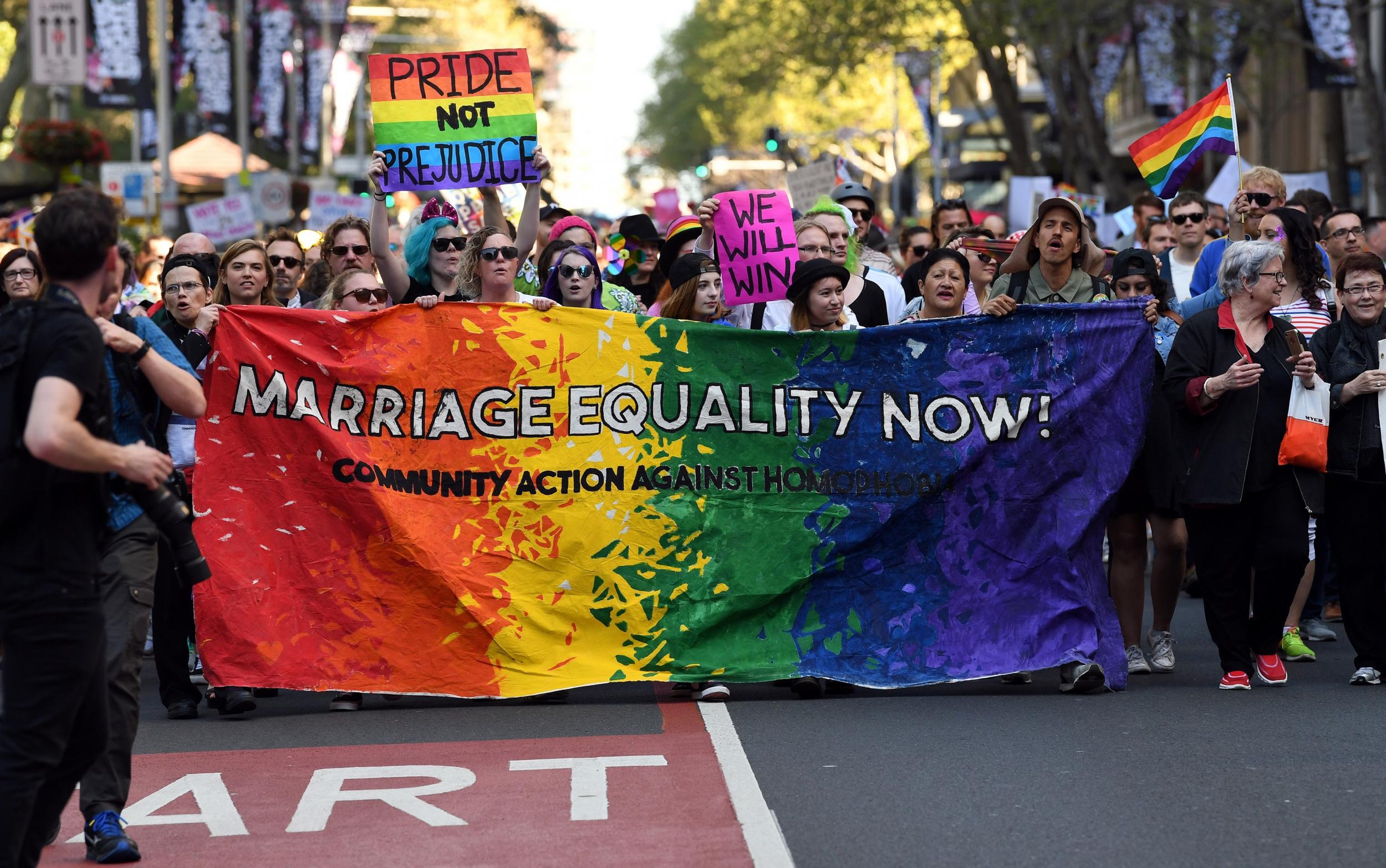Bermuda repeals same-sex marriage in world first
Critics brand 'shameful' move an unprecedented rollback of civil rights

Your support helps us to tell the story
From reproductive rights to climate change to Big Tech, The Independent is on the ground when the story is developing. Whether it's investigating the financials of Elon Musk's pro-Trump PAC or producing our latest documentary, 'The A Word', which shines a light on the American women fighting for reproductive rights, we know how important it is to parse out the facts from the messaging.
At such a critical moment in US history, we need reporters on the ground. Your donation allows us to keep sending journalists to speak to both sides of the story.
The Independent is trusted by Americans across the entire political spectrum. And unlike many other quality news outlets, we choose not to lock Americans out of our reporting and analysis with paywalls. We believe quality journalism should be available to everyone, paid for by those who can afford it.
Your support makes all the difference.Bermuda has become the first country in the world to repeal a law allowing same-sex couples to marry.
The island’s governor, John Rankin, approved a bill on Wednesday that reverses a Supreme Court ruling last year authorising gay marriage.
Critics have branded the move by the British Overseas Territory an unprecedented rollback of civil rights.
But minister of home affairs, Walton Brown, said the legislation signed by Mr Rankin seeks to balance opposition to same-sex marriage on the socially conservative island while complying with European court rulings that ensure recognition and protection for same-sex couples in the territory.
Bermuda's Senate and House of Assembly passed the legislation by wide margins in December and a majority of voters opposed same-sex marriage in a referendum. The island now only has a law allowing domestic partnerships for gay couples.
"The act is intended to strike a fair balance between two currently irreconcilable groups in Bermuda, by restating that marriage must be between a male and a female while at the same time recognising and protecting the rights of same-sex couples," Mr Brown said.
LGBT+ civil rights groups said that domestic partnerships amount to a second-class status and that it is unprecedented for a jurisdiction to take away the legal right to marriage after it has been granted.
"Governor Rankin and the Bermuda Parliament have shamefully made Bermuda the first national territory in the world to repeal marriage equality," said Ty Cobb, director of the Human Rights Campaign Global.
The move has seen other prominent LGBT+ rights activists call for a boycott of the territory, using the hashtag #BoycottBermuda.
Couples in a registered domestic partnership will now have "equivalent" rights to those of married heterosexual couples, including the right to make medical decisions on behalf of one's partner, Mr Brown said in a statement issued by the government.
About a half dozen existing same-sex marriages in Bermuda, which took place between the Supreme Court ruling in May 2017 and the repeal, will continue to be recognised under the new law.
Bermuda, a predominantly Christian country, has seen a significant shift in recent years towards evangelical branches of Christianity.
In a debate in the UK's House of Commons last month, Labour's Chris Bryant called the bill a "deeply unpleasant and very cynical piece of legislation."
"I feel enormously disappointed," said 64-year-old married gay Bermudian Joe Gibbons. "This is not equality, and the British government has obviously just said, 'This is not our fight.'"
Despite suggestions the UK Foreign Secretary would have a say over the repeal of the law, Boris Johnson appeared to have no involvement.
His permission would only have been required if Mr Rankin decided to “withhold consent” from signing the legislation into law. But the governor confirmed he had approved the bill after “careful consideration in line with my responsibilities under the Constitution”.
Additional reporting by Reuters and AP
Join our commenting forum
Join thought-provoking conversations, follow other Independent readers and see their replies
Comments